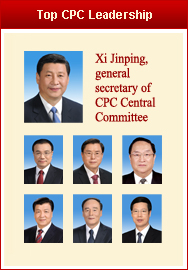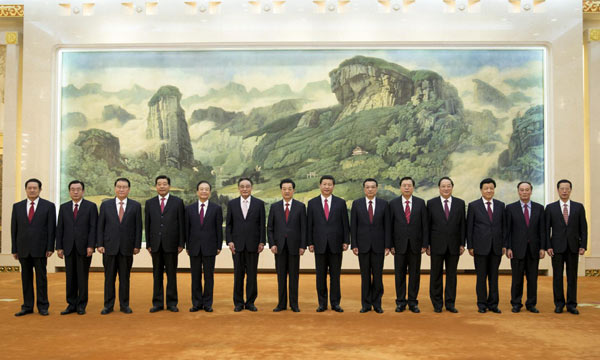7 days that will change the world
(China Daily)
Updated: 2012-11-08 07:43
The ticker tape may have gone, replaced by an electronic buzz, but newsrooms remain challenging places for faint tickers.
Constant deadlines, missed meals, copious intake of tea or coffee and heart attacks are part of the nature of the beast.

A building crescendo as deadlines approach, breaking stories, updates, dropped stories, new angles, late quotes, all add to an increasing sense of urgency. Faint heart never won fair maiden nor did it ever make a newsroom swoon.
Papers are the same the world over, and it takes a certain type, no pun intended, to work there. Long hours, little pay, less appreciation. It is not an environment that easily breeds camaraderie.
But Chinese colleagues make it an exceptional experience. The three P's, Politeness, Professionalism and Punctuality, are adhered to with an almost uncanny stoicism. No matter how tough or late the stories, tempers are kept in check and the basic courtesies honored.
The stories are compiled in the stories of a building on Huixin Dongjie. Not so much Downton Abbey, more Upstairs, Downstairs.
Upstairs on the third floor and above, the well-heeled, shoe-polished, creased-shirt-brigade strut their stuff before heading off for early evening cocktails or a good meal.
But downstairs, on the second floor, the situation room, live the nighthawks. All human life is here.
News, sport, features, international and national news occupy various cluttered desks. We may not be the glory boys but we are the story boys.
Despite the pressure, pleasantries persist. Families are inquired after and then deadlines are mastered.
The approach of Chinese journalists is also different.
This week may go down in history as seven days that changed the world.
A US election and new leadership in China. Chinese journalists know that they are writing the first draft of that history and their words will be in the global spotlight.
Past congresses have plotted the course for the greatest economic rise since the dawn of the industrial age when Britain moved from field to factory.
But China is still a developing country and much remains to be done. Chinese journalists, perhaps differently from their Western counterparts, will be looking at the detail of the policies adopted and not at the personalities. They will compare future prospects to past achievements.
Different challenges require different solutions but the challenges remain enormous and the policies to overcome these challenges will be put under the microscope.
Here's the rub. These policies will not just affect China.
The first nine months of the year saw more than 10 million jobs created in China. These figures are just as important as the US monthly job figures that get far more publicity.
It is arguable that the Chinese job figures will have a greater impact on the global economy as China's economy shifts to being import-led.
Policy figures from the congress will be scrutinized and put into stories by editors and these stories will provide the first glimpse of how the next decade will evolve.
One thing we know is that by the time the next congress convenes, Chinese job figures will be of far greater global interest.
Tom Clifford is a senior copy editor at China Daily. He can be contacted at [email protected]
?
Related Stories
CPC resolved to deepen reforms 2012-11-08 02:34
CPC congress to highlight anti-corruption 2012-11-07 19:04
Xi Jinping appointed secretary-general of 18th CPC Congress 2012-11-07 16:55
CPC delegates from private sector doubled 2012-11-07 15:53

Top News
Xi emphasizes adherence to CPC Congress spirit
Top legislator urges implementation of congress spirit
Moderately prosperous China brings chances to world
Video







